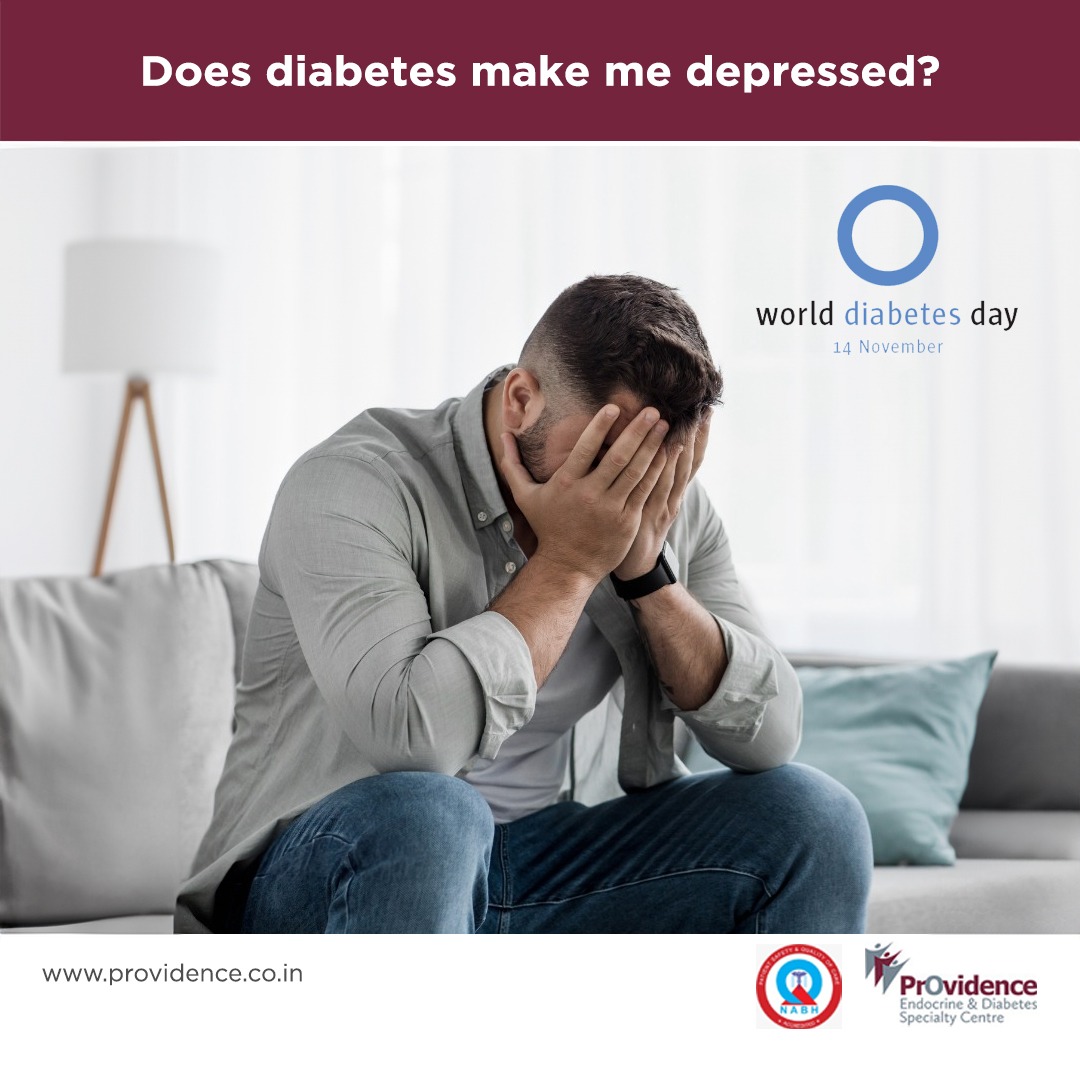While diabetes doesn’t directly cause depression, its complex management and emotional burden can increase the risk. There is a higher risk of depression in people with diabetes.
People with diabetes, especially with associated complications like heart or kidney disease, may require multiple medicines, tests, periodic doctor visits and occasional hospitalisation. Further, they must take drugs on time, test glucose at home, consume appropriate food and exercise daily to maintain normal glucose levels. These complex and continuous rituals may lead to stress and difficulties in coping.
All of us feel overwhelmed at times with our daily routines. But having depression is different. Please see the chart below to understand the symptoms of depression.
Depression can significantly impact diabetes management, affecting physical, mental, and emotional well-being. It can:
• Disrupt healthy diet and exercise habits
• Impede self-care and lifestyle choices
• Worsen blood sugar control
What can you do if you have emotional or physical symptoms of depression?
1. Talk to your doctor about your feelings
2. Discuss with your family
3. Meet a mental health professional physically or online for help
4. If your symptoms merit medicines or psychotherapy, consider the same actively.
5. Check with your doctor if any aspects of your disease ( e.g. blood sugars, blood pressure, complications) or medicines are worsening your depression.
As a person with diabetes, you have the right to feel good, well and healthy. Take steps to improve self-care and well-being.
Ms. Aneesha Joseph, MSc



